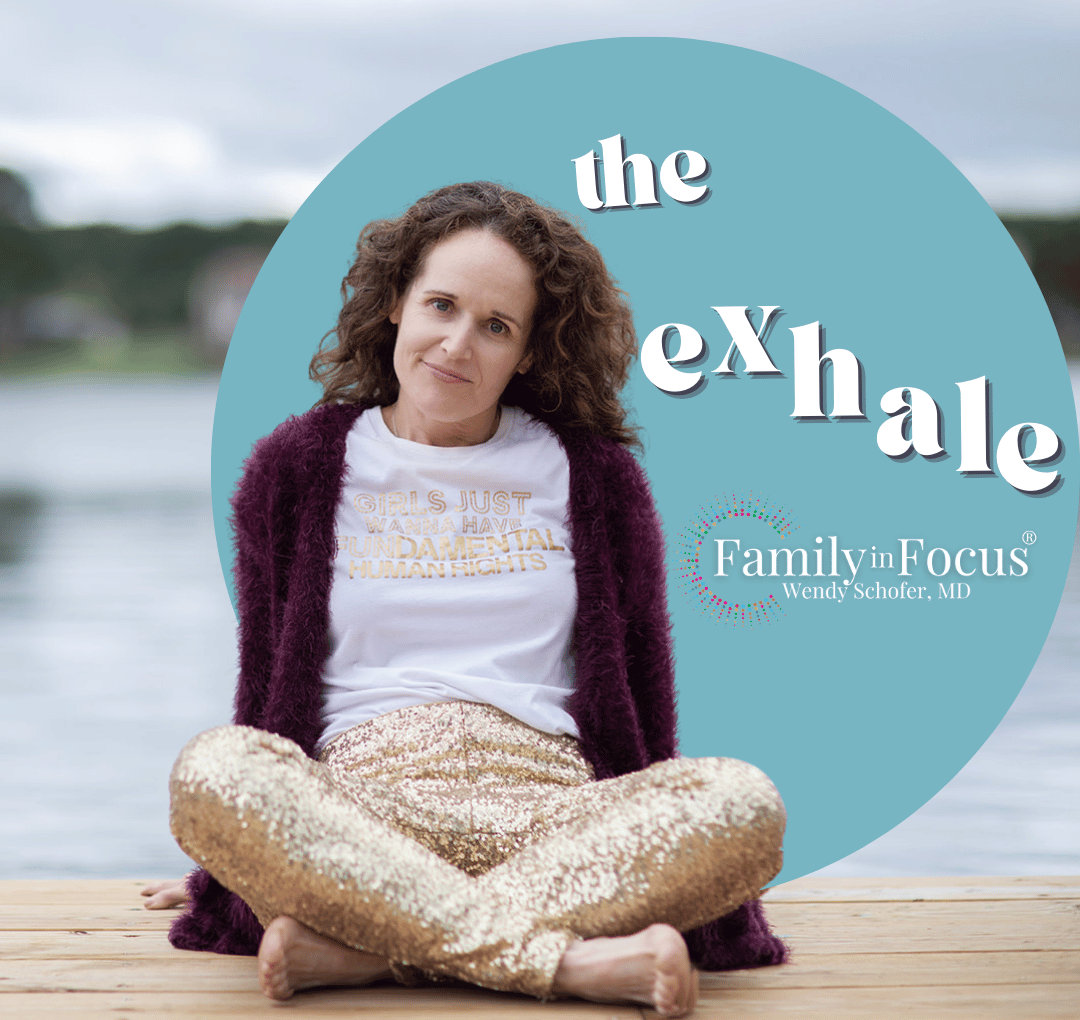
As a physician, my family is not immune from receiving medical diagnoses.
Haha. And there’s a pretty honest expression here: that doctors make the worst patients. Why? Because we don’t see ourselves as being patients, and how often there is a lot of judgment about being sick, or having the crystal ball about what this diagnosis means.
It’s all BS.
Let’s talk about why.
My family has received multiple diagnoses over the past few years.
Before you get into, “Well, what kind of diagnosis? Is it physical, mental, emotional, behavioral…”
It doesn’t matter!
No diagnoses inherently mean more than another.
That’s news for a lot of folks. But I have to tell you that working in pediatrics, I have had “significant” diagnoses that were welcomed and celebrated, and other “less concerning” diagnoses that kept parents up at night.
There is no grading of diagnoses.
And this is what we all get to learn: all diagnoses are neutral.
I didn’t believe that a few years ago. Heck, that’s not what I was taught in medical school.
But a diagnosis is just a name that is given to help understand a pattern that is witnessed. It can be used to prompt treatment or further evaluation. Or even to stop treatments.
A few years ago, we had other diagnoses assigned to my kids.
I was upset.
Why?
Because I asked myself the wrong questions when I heard the diagnoses.
- Why hadn’t I seen the diagnosis coming?
- How had I been unable to prevent it?
- What awful things did I have to worry about now?
- What kind of a parent, doctor was I being that my own kids were dealing with this?
- And why did it bother me so much that *I* was struggling with the diagnosis?
I argued, I fought, and I tried to avoid placing the “labels” on my kids.
Part of it was being afraid of me being the parent of kids with diagnoses.
And part of it was my fear of how the labels would be applied to them in school and future settings. As a military family, there was always the question if having a certain diagnosis would keep my kids from joining the military in the future. ((The funny part is that I was doing this without the kids saying they were even interested in the military, and it was like 10 years ahead of time. Talk about worrying about the future.))
Well, it’s different now.
This week we received a new diagnosis, one I didn’t see coming. I could be upset about what it meant that I didn’t see it, I didn’t make the diagnosis.
Instead I’m looking at the diagnosis as a GIFT.
“This explains so much!”
I’m asking myself a few very different questions:
”How can we use this diagnosis as a tool?”
“And now what?”
The difference in my approach isn’t the different diagnoses, it’s in my thoughts about diagnoses.
It is acceptance. I thought long ago that acceptance was giving up.
Now I see that acceptance doesn’t mean I’m not doing anything. I’m not giving up. I’m working with what IS.
A diagnosis is not a sentence. It doesn’t have to impact anything, unless we want it to. And we can use a diagnosis for good.
Whether that is a mental health diagnosis, behaviors, overweight, obesity, or even underweight – which are all common diagnoses in children – how do you want to use this information to help you and your kids?
For me, I have quickly come to accepting the new diagnosis. Because I know that it will help my child get the support that they need. And that can/should be the ultimate reason for a diagnosis. We talk about naming emotions to tame them,
“Name it to tame it”
Well, that can apply with diagnoses too.
An example that I see very often in the medical office is when to diagnose asthma. I discuss with parents about the definition (basically, when to use the diagnosis) – and, specifically how that helps the parent and the child get the appropriate treatment. It’s not a label; the diagnosis is a guide to get the support that is needed.
That’s something that I wish had been more explicitly discussed in medical school. And I think that now we have the opportunity to reframe it.
How can a diagnosis be a tool, a help, perhaps something that explains — as opposed to a label or something to lump people in categories?
The diagnoses themselves are neutral, we then get to figure out what it means for us.
That means it will mean different things for different people.
Take the example of a dear patient and friend of mine, Arianna. I was there for her birth when we noted that there was a significant structural difference in her brain. It took a few weeks and we finally settled on a diagnosis. Her momma did something I had never seen before: she refused to listen to what other people told her that diagnosis meant. Kathy heard folks saying that this diagnosis meant that her child wouldn’t walk, talk, develop a lot of “normal” functions.
Kathy told them off. She advocated. She looked at how the diagnosis gave them the opportunity to get access to treatments and therapies and Kathy does not take no for an answer.
Arianna is now a teenager. She still carries her diagnosis (always will), but it does not hold her back. It doesn’t define her.
We can do that as well with mental health diagnoses, weight diagnoses, behavioral and physical diagnoses.
How can this new diagnosis help you and your child?
Check out the Family in Focus with Wendy Schofer, MD Podcast!
Stay connected with news and updates!
Join our mailing list to receive the latest news and updates from our team.
Don't worry, your information will not be shared.
We hate SPAM. We will never sell your information, for any reason.


